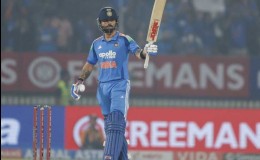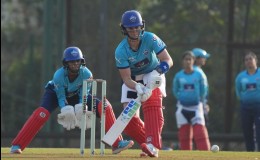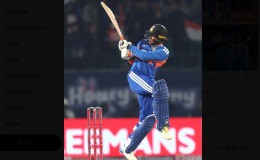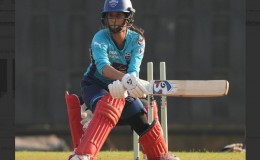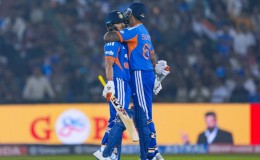Terming Sachin Tendulkar’s achievement of scoring century of centuries as superhuman, Selection Committee Chairman Krishnamachari Srikkanth cited the Master Blaster as a classic example for "thriving in an imbalanced world."
According to a report in The Indian Express, Srikkanth, who an ardent admirer of Tendulkar, said, "A classic example for thriving in imbalanced world is Sachin Tendulkar. In 1989, when I was the captain, he was just 16 years old..... making a debut in Pakistan against Pakistan. And there was Imran Khan, Wasim Akram.... You call that a balanced world? In his first match, he gets it on his mouth, bleeds through his mouth. He does not go back. Then, he continues to play. Then, he continues, continues, continues and (is still) continuing!" he said.
Describing the challenges Tendulkar had to go through, Srikkanth said he had scored against Australia, South Africa, England and West Indies under various conditions, "All imbalanced conditions" ranging from turning wickets in India, seaming and bouncy tracks in England and Australia besides West Indian fast bowlers. Srikkanth was addressing a seminar on 'Thriving in an Imbalanced World' organised by CII.
Meanwhile on one hand the Indian cricket board decided to send a full strength squad for the one-off Twenty20 international against South Africa at Johannesburg on March 30, turning a deaf ear to calls by the IPL franchisees and ignoring the fatigue of the players, while the hosts have decided to rest key players who are involved in the ongoing Test series in New Zealand by fielding almost a second string side, says a report in Hindustan Times.
South Africa announced a 13-member squad on Saturday, which included three debutants. “We are leaving all the players out who are involved in the current Test match against New Zealand with the exception of Jacques Kallis, for whom there are special circumstances,” said Andrew Hudson, Cricket South Africa's (CSA) convener of selectors, adding, ““They will arrive back home two days before the match, having travelled halfway across the world, including a 10hour time difference, and we don't believe they will be in any condition to play an international game of cricket.”
An article by Ian Chappell in Hindustan Times says that administrators should make sure skippers don't come under the influence of bookies. Terming fixing to be a serious issue, Chappell writes that it's the one vice that could bring cricket to its knees. “That's why it's imperative that cricket impose a life ban no questions asked on any player or official involved in fixing of any kind,” he writes adding that there has been a lot of sympathy for Mohammad Amir, the young Pakistan fast bowler who has just been released after serving half of his six-month custodial sentence.
“It's fine for the public to express sympathy but in such a high stakes battle, the cricket officials can't afford any similar emotions. With one exception (discussed below), Amir and all other convicted fixers must be handed a life ban from the game and not be able to hold an official position in cricket thereafter. The crooks certainly don't have any sympathy for cricket. They've displayed an utter disregard for the game and have targeted captains of international teams, the men charged with the authority and duty of influencing young players under their command. While cricket has to be extremely tough in the punishment it metes out to send a strong message to the crooks, it also has to make the players fully aware that they intend to eradicate fixing. This has to be a zero tolerance operation if any headway is to be made in exorcising this insidious cancer.”



